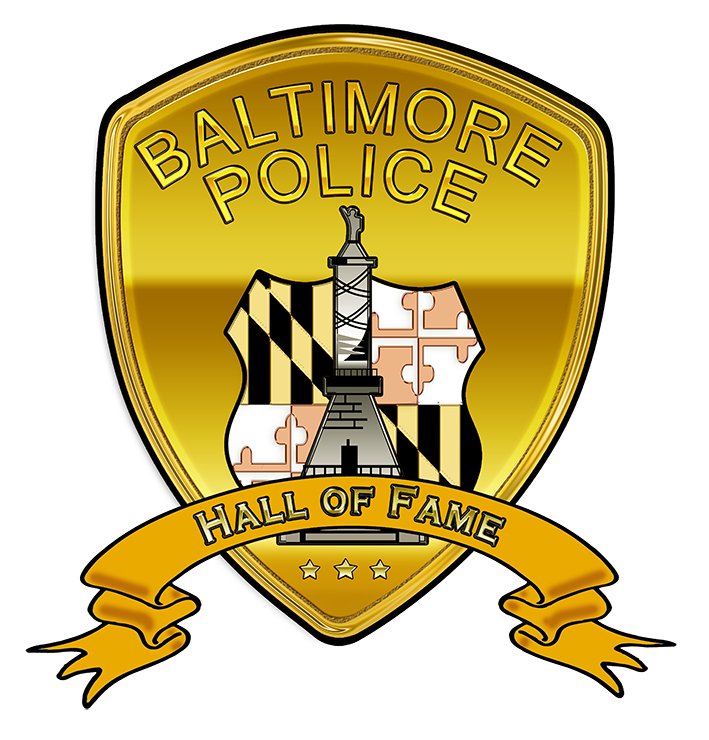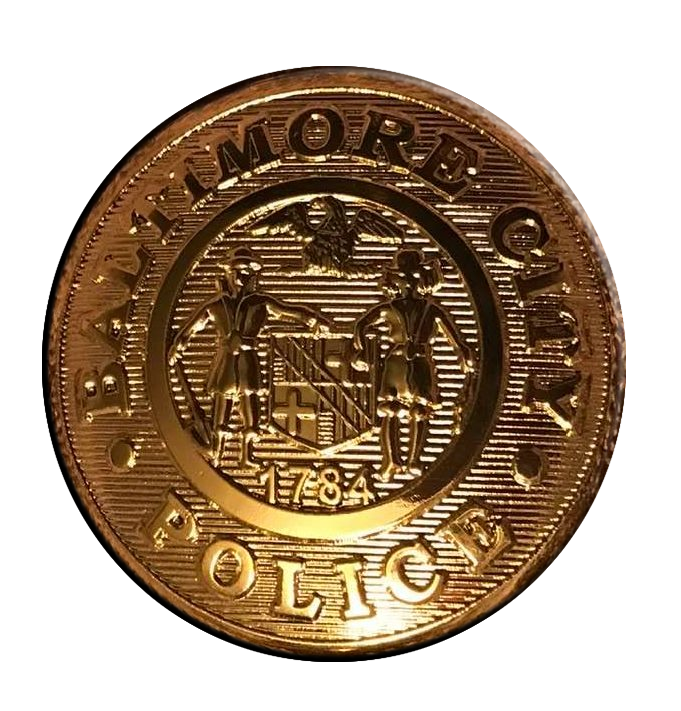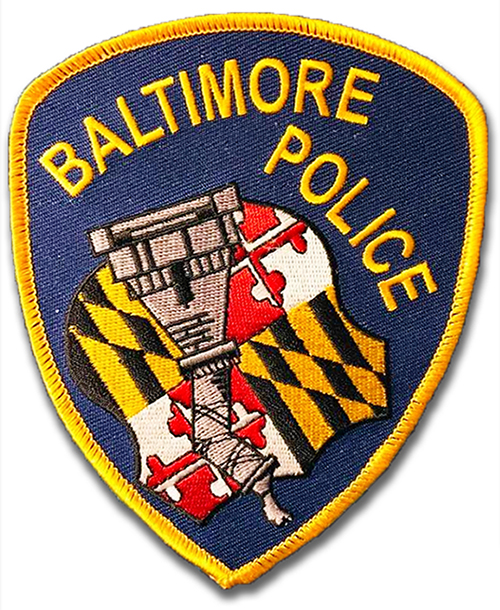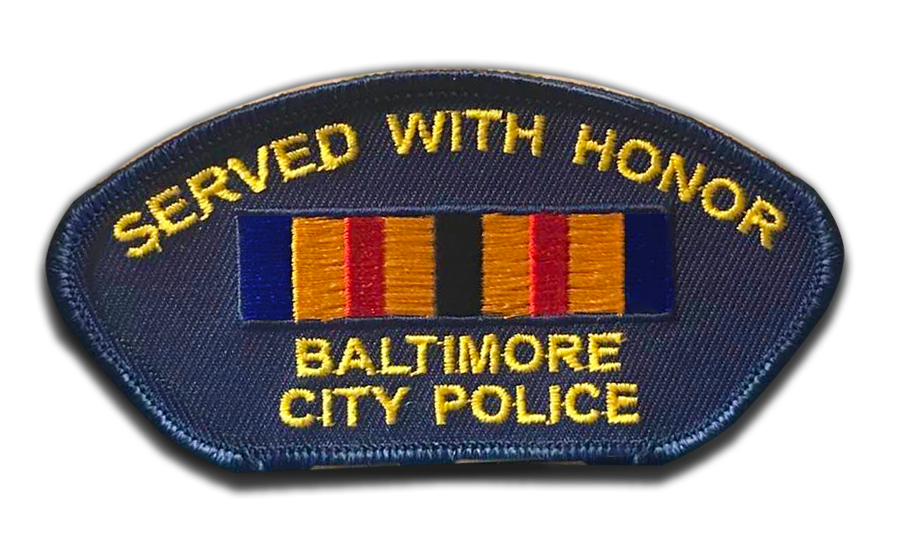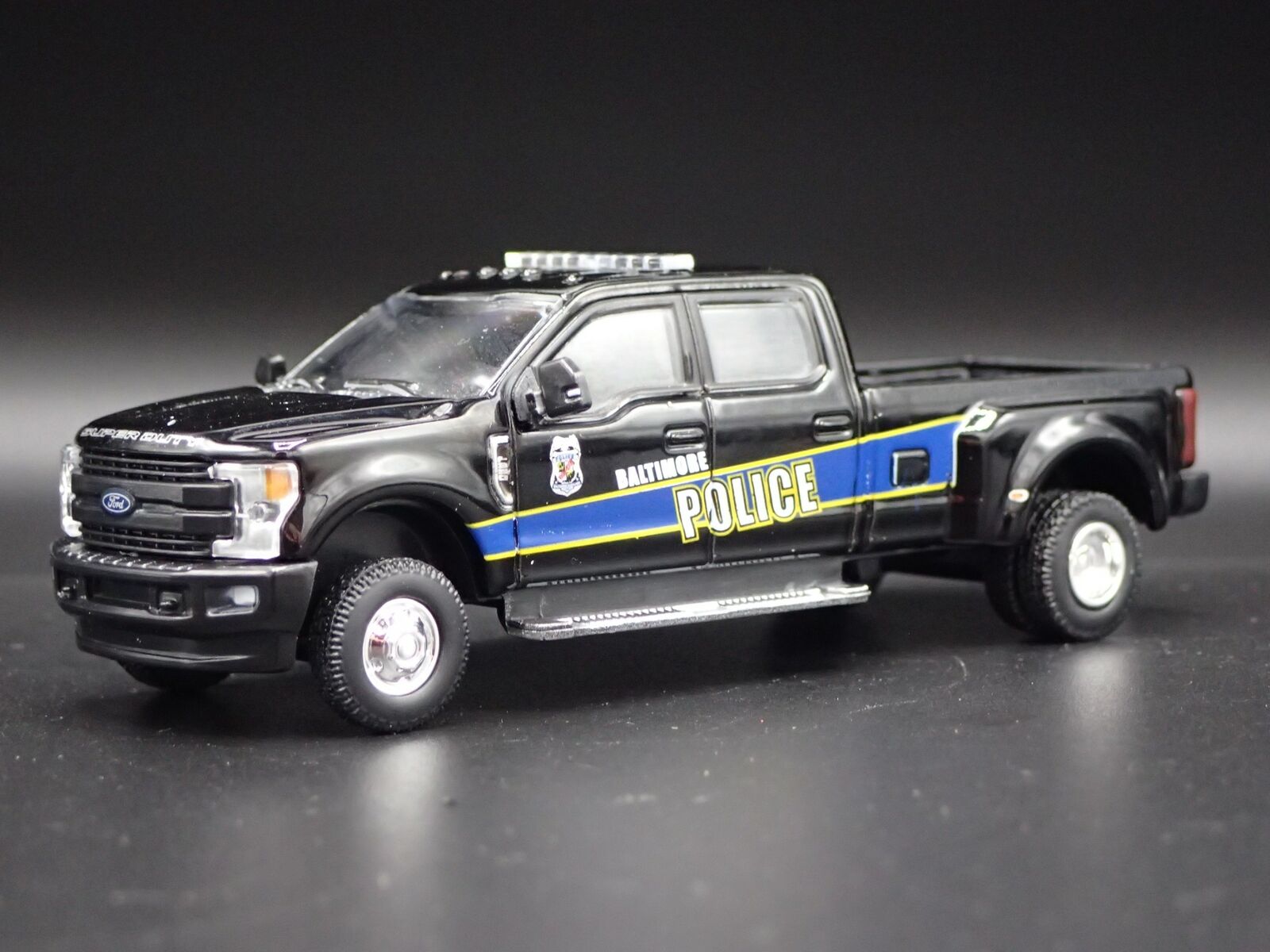The following is the commissioners excuse for leaving. We are not sure he did anything. I will say that when Ken went to talk to him in 2019, when he first joined the department, and Ken offered some suggestions for the museum, Harrison said, "I don't make any decisions without the use of a committee." This is a guy that is supposed to be the leader of men and women that don't have that option, yet they are looked at under a magnifying glass, and their commissioner can't make a decision on his own... I am sorry; I lost all faith in him when Ken told me what he had said, as did Ken, and Ken never bothered to talk to him anytime after that meeting. We won't give our opinion about his reason for leaving, only to say read his OP-ED and ask yourself how deep he piled it, or if you think he is 100% honest. Most of these guys forget they are a part of BPD history, and their actions will be reflected upon.
The following is the commissioner's excuse for leaving.
 Baltimore Police Commissioner Michael S. Harrison: ‘I have done what I came to do’ | GUEST COMMENTARY
Baltimore Police Commissioner Michael S. Harrison: ‘I have done what I came to do’ | GUEST COMMENTARY
By Michael S. Harrison
For The Baltimore Sun
Jun 27, 2023 at 9:26 am
Just over four years ago, I received an unexpected phone call from then-Baltimore City Solicitor Andre Davis inviting me to consider the role of commissioner of the Baltimore Police Department, which had lost the faith of the citizens it exists to protect and serve through the actions of rogue officers who defiled their oaths by engaging in unmitigated bias and blatant corruption. Freddie Gray’s death while in the custody of police officers was still an open and painful wound. The department had endured a succession of leaders since, and I faced the prospect of becoming the fourth in as many years.
I didn’t hesitate. I said “yes.”
I knew that many would be wary of me — an outsider who had only lived in one city far from the one I might now serve and had never visited. I was well aware of the instability resulting from the rotation of leaders both at City Hall and at the Baltimore Police Department. I was aware of the scandals and police practices that landed the department into a federally mandated consent decree, much like the one in my hometown of New Orleans. I was aware of the systemic neglect of long-underserved communities and the persistent levels of violence, murder and lawlessness that had defined a narrative for Baltimore that belied its assertions of being the “Greatest City in America”; or “The City that Reads” and “Believes.” I was also aware of its vibrant and diverse neighborhoods, its legacy of grit and determination, its incomparable assets of higher education institutions and medical systems, its big heart and generous spirit.
For all these reasons, I
I inherited a department required by the federal consent decree to reform its policies and practices — its internal culture — in order to conform with 21st century standards of constitutional, community-based policing. I soon realized in those early days of listening to the concerns, frustrations, hopes and recommendations within communities north, south, east and west, that the solutions to the issues plaguing Baltimore were not only within reach, they were right before me. They were revealed in the pleas and appeals, the common sense remedies offered with intense passion and often heart-rending accounts of personal loss and tragic experience. They were expressed in words of welcome and encouragement, pledges of support and promises to not give up. That policing alone would not — could not — solve the underlying causes that fueled violence and criminal acts was not an excuse but an undeniable fact.
Still, I knew we could do so much better and so much more as a department. Many said to me that it felt like the last best chance.
I am extremely proud to have led the Baltimore City Police Department through this period of transformation and cultural change, doing away with the “warrior and enforcement-only” model in favor of the “guardian” model as protectors of the community. This department has undergone a 100% makeover and is, without question, a department very different from the one I took over just over four years ago.
From the first day I assumed my responsibilities, my team of dynamic leaders and I sought to build a department that would serve as a model for the nation, and more importantly, for the people of Baltimore. Over the past 4 1/2 years, as detailed in my recently-published four-year review, we’ve demonstrated a 16% violent crime reduction and 21% property crime reduction. And by the end of the 1st quarter of 2023, murder was down 21%, and shootings were down 24% compared to the same time last year.
— Michael S. Harrison
We’ve made community policing the focus, delivering the first ever plan and training program, along with the first peer intervention program. Essential trainings that reflect 21st century constitutional policing have also been incorporated that now make the BPD a model department. In the last two years alone, we’ve hosted more than 40 agencies from around the country to teach them what we didn’t know ourselves less than five years ago.
Partnering with the Mayor’s Office and community organizations, the city implemented a Comprehensive Violence Reduction Strategy, for which I advocated in my first days here and included in my five-year plan. This has directly led to the reductions in violent crime that Baltimore is experiencing today. We’ve acquired new technology that took the department from being paper-based to now being fully digital — putting in officers’ hands the essential digital tools to be effective and efficient. We improved working conditions with new facilities and have targeted additional upgrades for the coming years. We have approximately 150 new vehicles on the street with more than 150 on the way.
I can’t help but be eternally grateful to our mayor, our governor, our federal delegation and our broader community partners, which include: elected, academic, community and faith leaders; U.S. District Court Chief Judge James K. Bredar; the Department of Justice and the consent decree monitors; and especially the men and women of BPD for all of the work and collaboration that helped us to achieve the success we have under my leadership. We have turned this department around and made it the world-class department that the rest of the country now knows it to be.
I have heard the concerns that violence reduction, especially as it pertains to homicides, hasn’t happened fast enough. I share those frustrations. However, we built a timeless infrastructure with processes designed to promote equity and fairness. We worked hard to end the culture of cronyism such that BPD now selects and promotes individuals based on their knowledge, skill and ability. We’ve designed a department that is responsive to the needs of residents and operates according to national best practice standards. Although we’ve created the best training programs at all levels to ensure competence and confidence, I’ll be the first to admit there’s more to do. Changing internal culture is always the hardest of all things to accomplish because it means unlearning while simultaneously reteaching and then relearning.
We have turned this department around and made it the world-class department that the rest of the country now knows it to be.
— Michael S. Harrison
I have done what I came to do — to turn the department into a self-assessing, self-correcting, law enforcement agency that treats people with dignity and respect. BPD now has the ability to get better every day, having prepared, cultivated and developed individuals for leadership roles. The momentum of across-the-board crime reduction now underway makes this the ideal time to pass the torch to a new commissioner who should assume the role while the hard work of these past several years is proving its effectiveness, rather than in a time of crisis. These are among the reasons that factored into my decision to pass the torch at this time.
I promised when I was appointed that I would put the Baltimore Police Department back in the hands of Baltimore. That time has come. I am eternally grateful for the opportunity, honor and privilege to have served as your police commissioner. I remain a Baltimore resident committed to the success of this department and to the success and growth of our city.
Thank you so much for this blessing of allowing me to be a part of the greatest comeback story in America.
Michael S. Harrison (This email address is being protected from spambots. You need JavaScript enabled to view it.; @BaltimorePolice on Twitter) is the outgoing commissioner of the Baltimore Police Department, having served in that role since January 2019.

Baltimore NAACP calls on mayor to withdraw police commissioner nomination: 'Process needs to be transparent'
BY ADAM THOMPSON
29 JUNE 2023
CBS BALTIMORE
BALTIMORE -- The NAACP of Baltimore is calling on city leaders to conduct a national search for a new police commissioner and withdraw the nomination of Richard Worley for the position.
Mayor Brandon Scott earlier this month announced his nomination of Worley to fill the role full-time after Michael Harrison announced his resignation.
Worley, the Deputy Commissioner, is serving in an interim role until the permanent position is confirmed by the Baltimore City Council.
"He must not become commissioner without a thorough vetting that includes interviews and input from relevant organizations," NAACP Baltimore President Kobi Little said. "We call on Mayor Brandon Scott to withdraw his nomination of Acting Commissioner Worley and to start the process over in a transparent and inclusive manner that includes community input or the necessary qualities that we would like to see in the next commissioner and includes a nationwide search. The safety of our city relies on it."
The nomination of Worley received approval from several city council members on social media.
However, Little said he was surprised and disappointed that Baltimore City leaders went ahead and vouched for the current acting commissioner.
"It is critical that our next commissioner is appointed through a transparent process that includes community engagement and real participation," Little said. "it is truly concerning that the general public, nor local community-led groups have been fully made aware of the process or how to be engaged. This process needs to be transparent, and inclusive of community voices to attempt to repair the damages that have been done. We cannot move forward without it."
Harrison was hired from New Orleans through a national search in 2019.
Little believes the same process should be made for the next police commissioner.
"We are saddened we have to have this press conference today," Little said. "It is our hope that we have a Baltimore Police Department that is marked with equity and is part of a strategy that is to build peace in Baltimore City and to advance equity to repair the damage that has been done by mass incarceration and the war on drugs by racial profiling and by an antagonistic history with the African-American community and other communities in Baltimore."
Worley is a Baltimore native who joined the Baltimore Police Department in 1998.
He started on patrol in the Western District and was later promoted to Lieutenant of that district and then Major.
Worley was appointed Chief of Detectives in 2021 before being named Deputy Commissioner in September 2022.
"Our statement is about the process," Little said. "The only issue of concern for us is that three weeks have gone by and this acting commissioner has not reached out to the very active coalition of civil society organizations that have been working to end police violence and police terror and bring about police accountability. That is a tremendous oversight. He has to do the work to show that he understands the vital role that our organizations play, not only in the selection process but in the ongoing process of reforming the Baltimore Police Department to maintaining community relations in Baltimore City and building peace and security of all people in Baltimore."
Homicides in Baltimore are down by nearly 40 compared to this time last year.
But Little said a concern is how the police department responds to armed suspects with illegal guns.
"We must have a strategy to disarm those who are possessing weapons illegally," Little said. "However, we are very clear the department's approach to disarm must not be to shoot anyone who is in possession of an illegal weapon. We are unclear if the Baltimore Police Department has gotten this message."
First published on June 29, 2023 / 12:01 PM
© 2023 CBS Broadcasting Inc. All Rights Reserved.

POLICE INFORMATION
If you have copies of: your Baltimore Police Department Class Photo, Pictures of our Officers, Vehicles, Equipment, Newspaper Articles relating to our department and or officers, Old Departmental Newsletters, Lookouts, Wanted Posters, and or Brochures. Information on Deceased Officers and anything that may help Preserve the History and Proud Traditions of this agency. Please contact Retired Detective Kenny Driscoll.
This email address is being protected from spambots. You need JavaScript enabled to view it.

NOTICE
How to Dispose of Old Police Items
Please contact Det. Ret. Kenny Driscoll if you have any pictures of you or your family members and wish them remembered here on this tribute site to Honor the fine men and women who have served with Honor and Distinction at the Baltimore Police Department. Anyone with information, photographs, memorabilia, or other "Baltimore City Police" items can contact Ret. Det. Kenny Driscoll at This email address is being protected from spambots. You need JavaScript enabled to view it. follow us on Twitter @BaltoPoliceHist or like us on Facebook or mail pics to 8138 Dundalk Ave. Baltimore Md. 21222
Copyright © 2002 Baltimore City Police History - Ret Det Kenny Driscoll

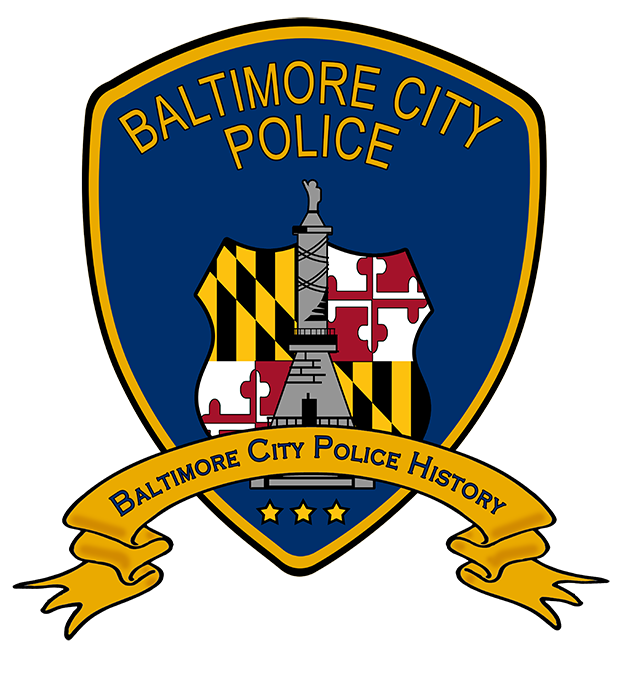
 Baltimore Police Commissioner Michael S. Harrison: ‘I have done what I came to do’ | GUEST COMMENTARY
Baltimore Police Commissioner Michael S. Harrison: ‘I have done what I came to do’ | GUEST COMMENTARY